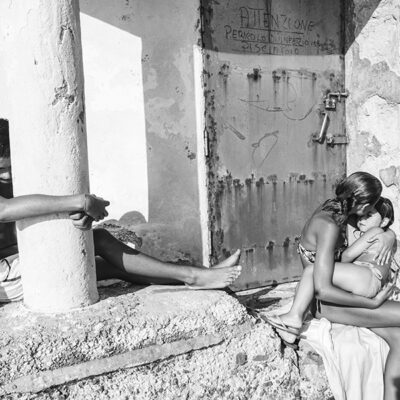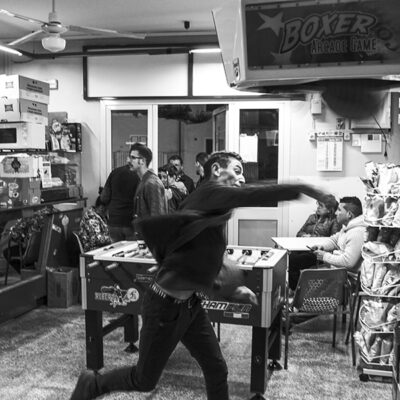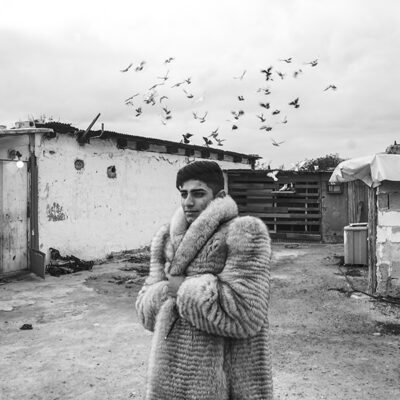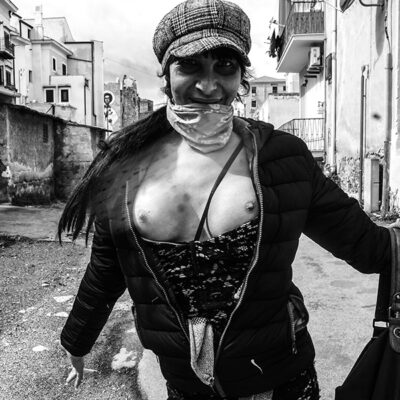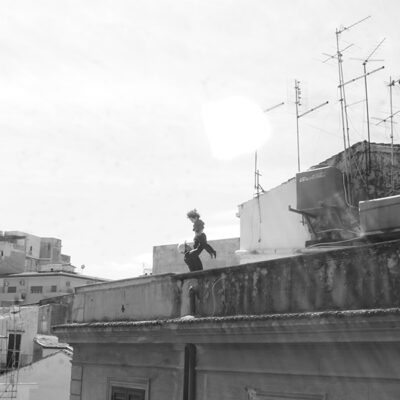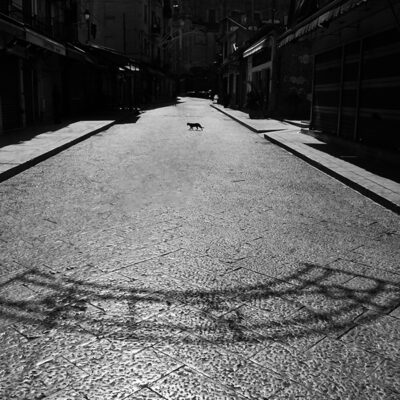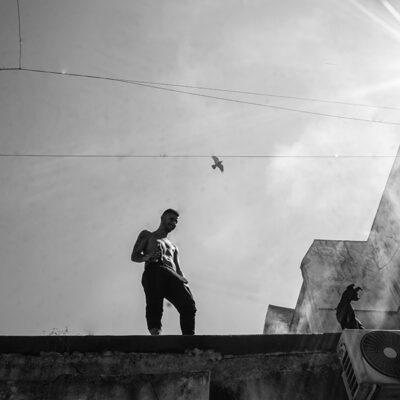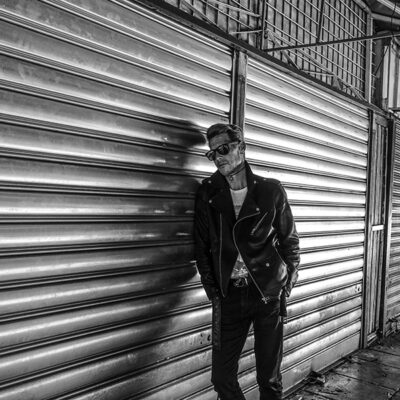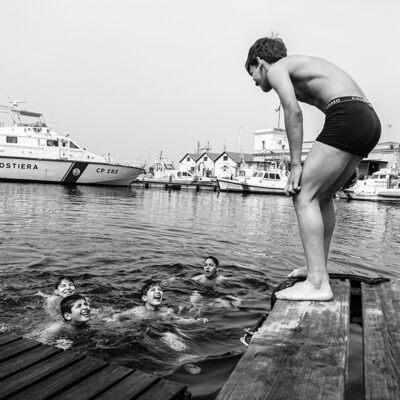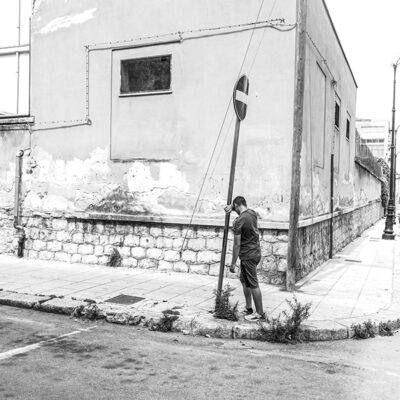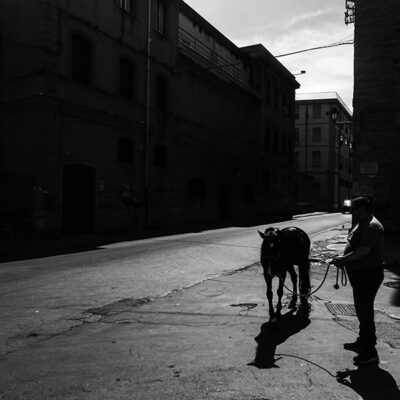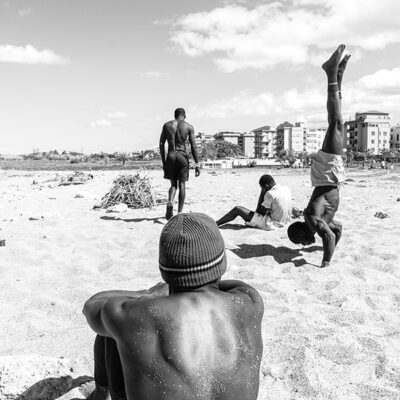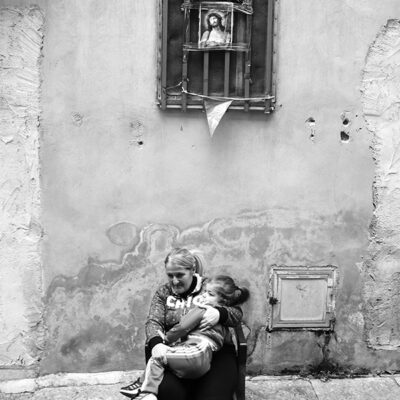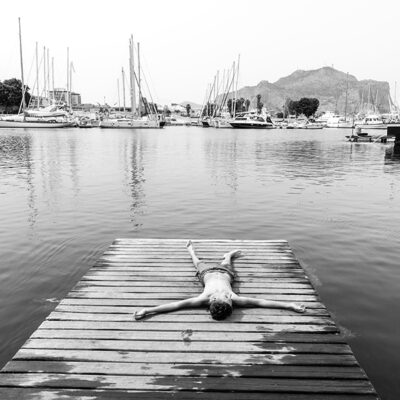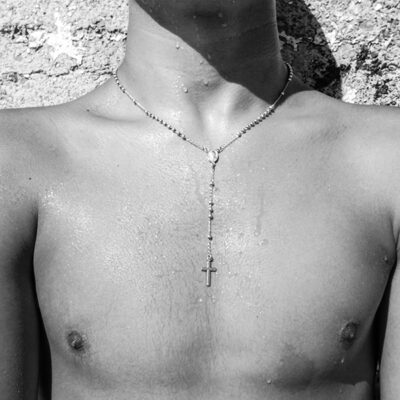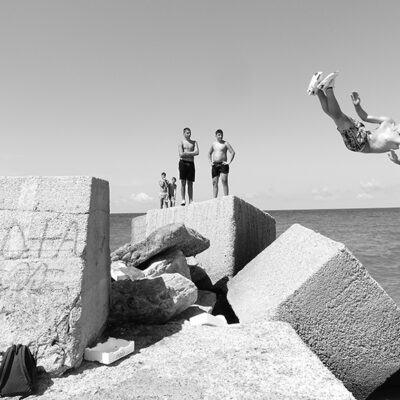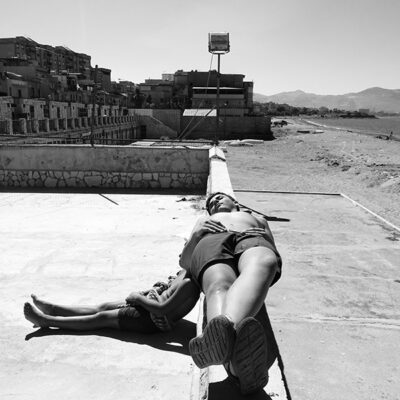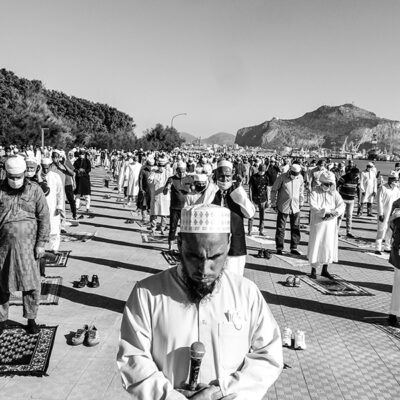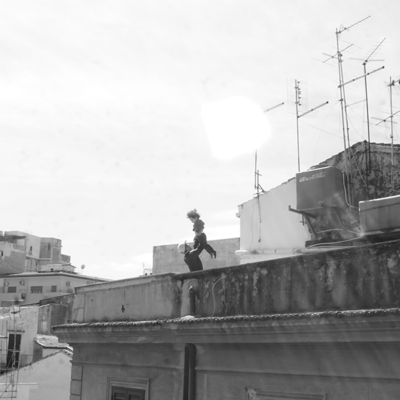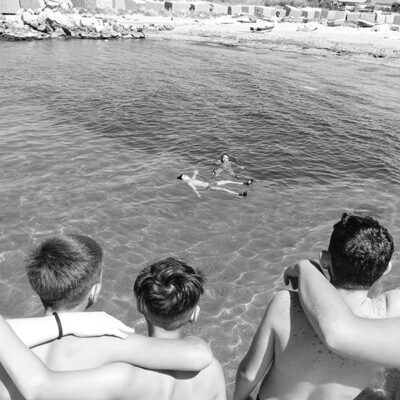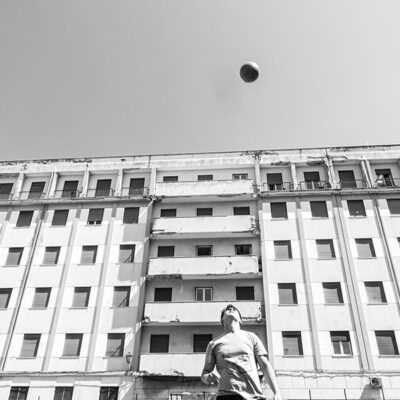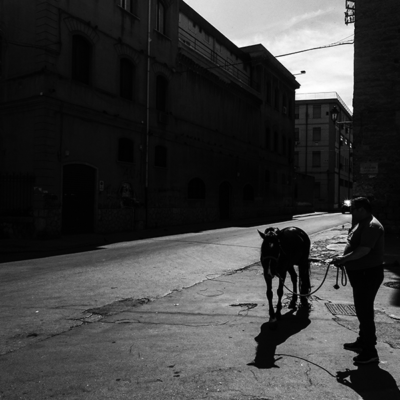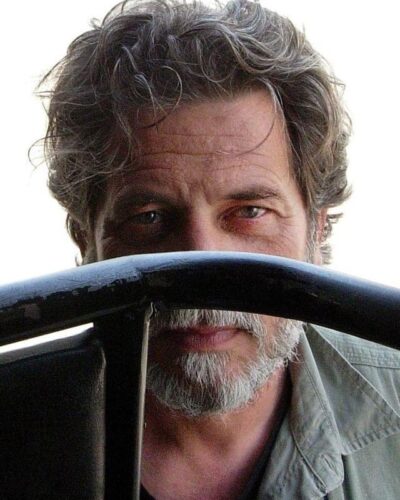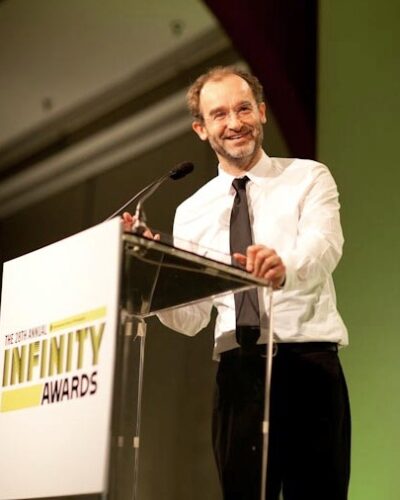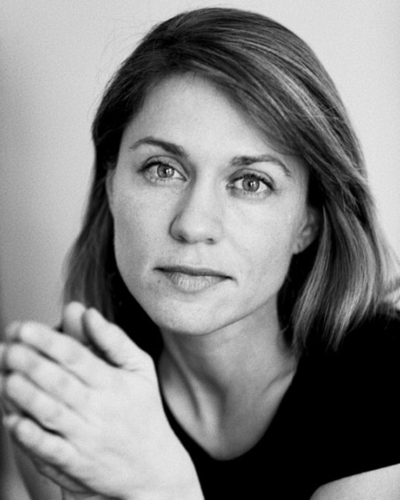Francesco Faraci was born in Palermo in 1983. After completing his studies in anthropology and sociology, in 2013 he turned to photography and learned from the great European and American photographers in order to develop his own photographic style. The focus of his work is his homeland of Sicily, which he travels far and wide, describing its cultural crossroads and existential paradoxes: birth and death, joy and violence, the solitude that hides among the folds of modernity. He has a particular interest in the minorities and children who are born and grow up in poor, abandoned neighbourhoods. In 2016 his first photographic book Malacarne-Kids come first was published by Crowdbooks and curated by Benedetta Donato: a three-year journey through the outskirts of Palermo, which received the second prize in the photo books section at PX3 in Paris and MIFA. In 2017 his first novel Nella pelle sbagliata (In the wrong skin) was published by Leima Edizioni. Two of his photographs are used for the covers of the Dutch editions of Saviano’s novels La paranza dei bambini (The Piranhas) and Bacio feroce (Savage Kiss). In 2019 he took part in Jovanotti’s “Jova Beach Party” tour to work on a reportage that, starting from the concerts, offered a picture of today’s Italy. The work is published by Rizzoli with the title Jova Beach Party: Cronache di una nuova era (Jova Beach Party: Chronicles of a new era). In 2020 the photobook Atlante Umano Siciliano (Sicilian Human Atlas) is published by emuse.
About The Collection
Sicilian. Human. Atlas.
Three words that together form a sentence, where each of them has a precise identity. Sicily, a door to enter Europe, to some offering the start of a new life, a point of arrival from neighbouring Africa. For others, the natives, it is a glimpse of the world, its roots running deep. A wonderful land, yet it can be one of the worst. Here nothing is ever as it appears. For contingency, Greek illusion. A work of contrasts: life/death, chaos/silence, resignation/redemption, joy/sadness. Semiabandoned towns where those who leave do not return and middle age is a utopia. The elderly remain, as do the stones of the houses, with doors and windows barred shut and decorated with “For sale” signs. The stones tell of what was and what will be in the near future. We flee Sicily, a land that is dying, and not even slowly. It must be saved in order to not forget, to reproduce on paper what is still there. The paradox is that there is no lack of energy or poetry. In the eternal struggle between leaving and staying, I have chosen to try to stand strong and recount the land I live in, unlike exotic photography that draws us to other places, far away. And yet, opening the doors of the house, opening the metaphorical windows of our lives, that world welcomes us and asks to be described. Life, death, dreams, defeats. Atlas is a journey. No matter how, just where and why. Walking through the geography of the Mediterranean soul, made of sensations, of perceptions that flow from the bare earth after the harvest. Wind, sky, sea currents, sun, moon and salt on the skin. Everything contributes to tracing the signs of the wayfarer’s travels on an imaginary map, who carries nothing but his bones, naked and open to confront surprise, fate, destiny. Human because earthly. Because after all humanity is the focus of the study. His condition of being “modern” in a land that is struggling to evolve and that, when it does, or tries to, gives up a piece of its atavistic identity each time. Sicilian, therefore, means not always being proud. Today, being Sicilian means to set out, to dig deep into the earth knowing that the sea, the only definitive border, has its only limit in the horizon and in the directions of the winds. Three words to describe a borderland. I set off on a journey in search of a small America inspired by Robert Frank and his The Americans. This is the meaning of this work that begged to come out.

